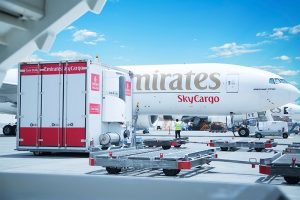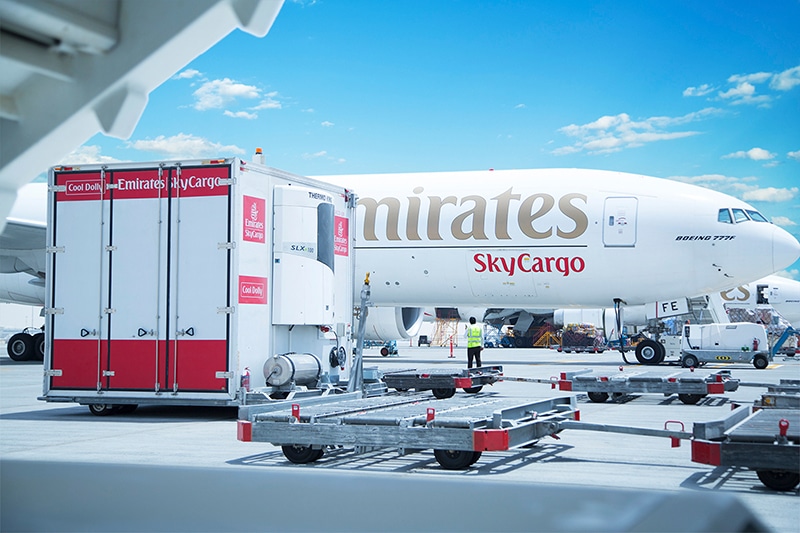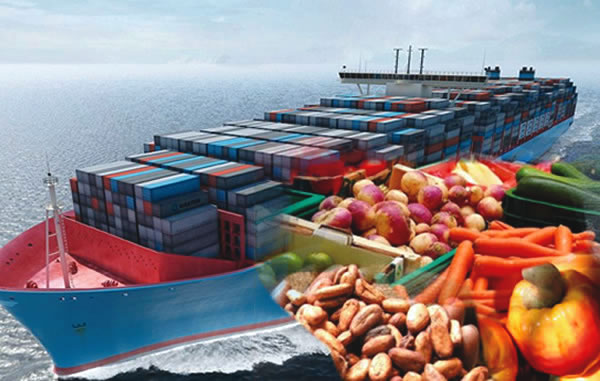
Emirates SkyCargo, a subsidiary of Emirates Group, has said that one of the challenges faced by the company is freighting pharmaceuticals across the world because of the delicateness of the products and the certifications needed for approval to airlift such cargo.
Currently, Emirates SkyCargo transports over two million kilogrammes of pharmaceutical cargo weekly, established 44 pharma corridors, which has prompted the airline to invest over $200 million on equipment and facilities to ensure pharmaceutical cargo gets premium priority and gets to their destinations timely and without damage.
This was disclosed by the Divisional Vice President of Emirates Skycargo, Badr Abbas, at the second day of the Air Cargo and Transport Logistics Africa conference which attracted over 4000 participants, including investors, aviators and other stakeholders from 150 countries.
Fielding questions at the side lines of the on-going conference, Abbas emphasised that pharmaceuticals are delicately managed because it deals with human health, so, the airline always places top priorities on cargo of such nature and always ensures it is delivered as received in time.
He disclosed that Emirates had invested in 15,000 square meters of good distribution practice (GDP)-certified facilities in Dubai, a facility he adjudged as the largest and most advanced globally.
His words: “Pharmaceuticals are shipments and lifesaving. And we have invested around $200m to ensure they are handled with utmost care. Our state-of-the-art 15,000 square meters of GDP-certified facilities in Dubai are the largest and the most advanced globally, equipped with temperature-controlled storage, cool dollies, and some custom innovations like water-resistant covers.
“So, all that is within our facility. At Emirates SkyCargo, we are a proud market leader, transporting over two million kilograms of pharmaceutical cargo every week.
“So, our network of 44 Pharma corridors connects the world with consistently high cold chain standards, ensuring that lifesaving treatments reach those in need reliably and efficiently. And also from these 44 Pharma corridors, four corridors are in Africa, and one of them is in Kenya.”
Also corroborating Abbas, the officer in charge of the airlines’ pharmaceuticals cargo globally, Julian Sutch, recalled the COVID-19 pandemic era, stating that the airline was the biggest transporter of vaccines across the world with particular attention to African nations.
He said the airline had prepared a huge facility and equipment that facilitated adequate movement and preservation of pharmaceutical cargo ahead of the COVID-19 pandemic, not knowing that the pandemic would break out
So, the facility later became invaluable and provided the platform for transportation of COVID-19 vaccines and others, especially preventative medicines, adding that the airlines placed the highest priority on such cargo, especially as they concerned immediate airlifting.
“I think we all know not too long ago, we had COVID hit the entire world, which is a global pandemic. I think we learned a lot from that. I think we underestimated how the world can come to its knees when you have a pandemic of the size that removes capacity and the free flow of commodities around the world.
“We fortunately have invested a lot in infrastructure, which is my first point, infrastructure is important. Do you have the right infrastructure? You know, we spent $200m in Dubai on a pharmaceutical facility to make sure that the infrastructure is in place. We had no idea that there was going to be an issue with the pandemic around the world, but we had the infrastructure prepared and built,” Sutch said.
He also said Emirates SkyCargo is prepared in terms of infrastructure, people and training, which connects to its SOPs (standard of operations).
His words: “If you have those four components, then dealing with some of the difficulties was very easy in the Middle East. We are not caught by surprise often because we are aware that there are geopolitical issues.
“For pharmaceuticals, it takes the absolute highest priority to get on board. So, when key diseases happen and start, the pharma and the vaccines or even the preventative medicine or the treatments, get the highest priority to get on that flight to their destinations.
“And with Africa, with the reach that we have, if you look at during COVID-19, we are the biggest mover of vaccines in the world and predominantly the largest place we move vaccines to was Africa.
“We made sure that we had the priority and the capacity to make sure we could get those vaccines here. And that goes for any particular type of ailment that happens, treatments, et cetera. It is all about the priority, making sure it can get on board as quickly as immediately.”






